- STAR Home
- > News &
Events
- > 8 May 2019 - AI Workshop Brings Together Environmental Science and AI / ML Expert Communities
AI Workshop Brings Together Environmental Science and AI / ML Expert Communities

Workshop Group Photo - 23 April 2019
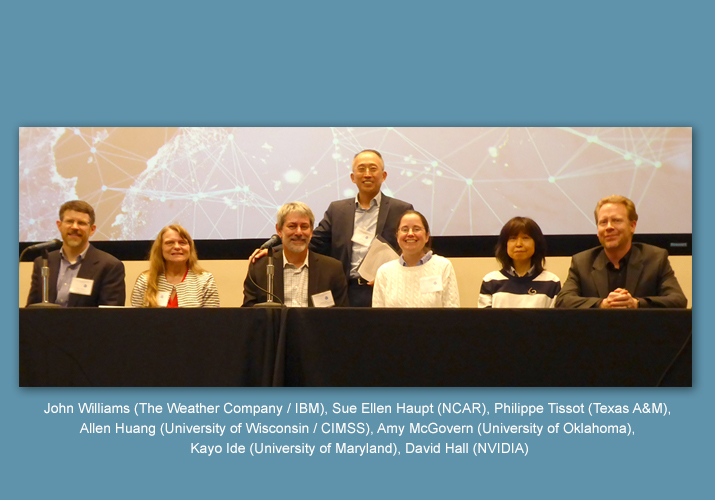
AI Workshop Panel
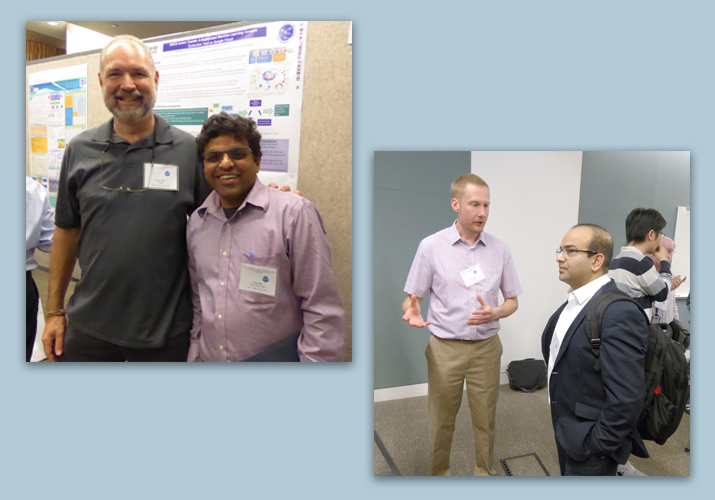
AI Workshop - Poster session
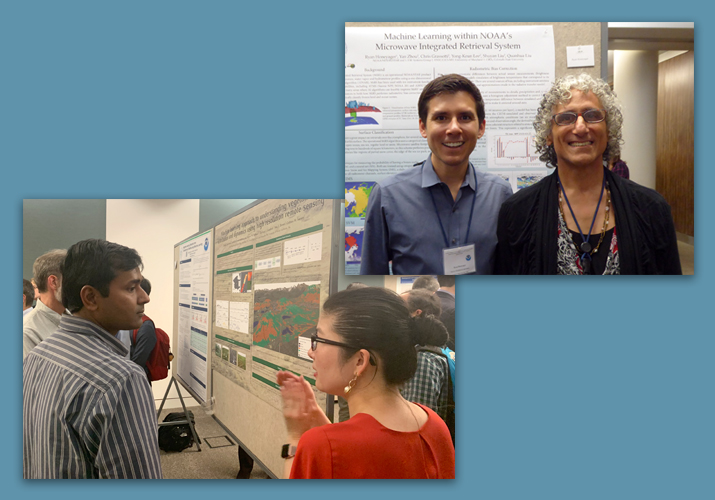
AI Workshop - Poster session
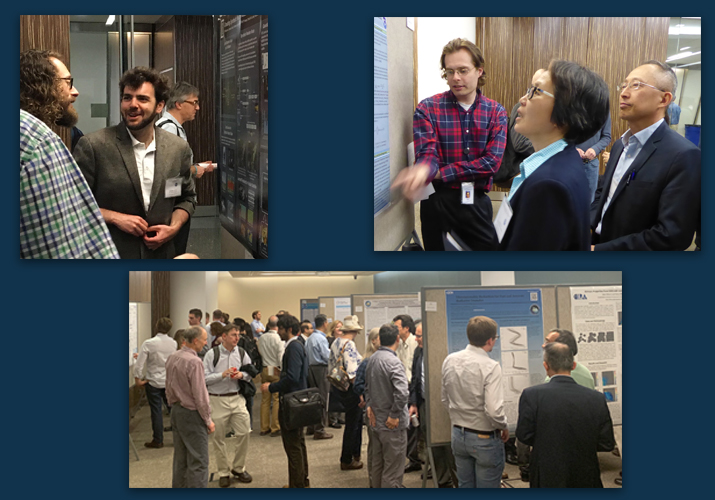
AI Workshop - Poster session
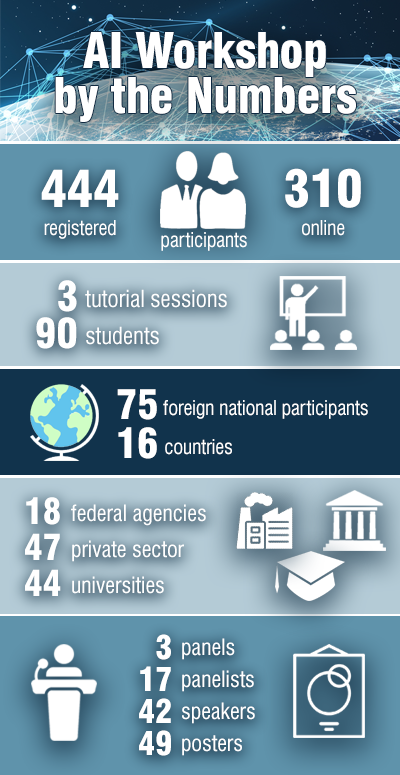 9 May 2019 - NOAA hosted the
1st Workshop on Leveraging AI in the Exploitation of Satellite Earth Observations &
Numerical Weather Prediction at the NOAA Center for Weather and Climate Prediction in
College Park, MD, from 23-25 April 2019. The objective of the workshop was to facilitate
exchange of knowledge between experts and thought leaders in remote sensing / earth
observation / NWP modeling science and artificial intelligence, to explore how to use
AI to address NOAA's biggest challenges in effectively using the explosion of data from
new Global Observing System sources. 9 May 2019 - NOAA hosted the
1st Workshop on Leveraging AI in the Exploitation of Satellite Earth Observations &
Numerical Weather Prediction at the NOAA Center for Weather and Climate Prediction in
College Park, MD, from 23-25 April 2019. The objective of the workshop was to facilitate
exchange of knowledge between experts and thought leaders in remote sensing / earth
observation / NWP modeling science and artificial intelligence, to explore how to use
AI to address NOAA's biggest challenges in effectively using the explosion of data from
new Global Observing System sources.
The workshop was both well-attended and enthusiastically received by attendees, with over
440 registered participants and dozens of presentations and posters over the course of the
workshop. Attendees represented a diverse array of government, private sector, and academic
stakeholders - NOAA, NASA, Oak Ridge National Laboratory; Google, Microsoft, NVIDIA, IBM;
Harvard, Johns Hopkins, UCAR, and Penn State, among numerous others. Keynote addresses by
Dr. Neil Jacobs (Assistant Secretary of Commerce for Environmental Observation and Prediction,
performing the duties of Under Secretary of Commerce for Oceans and Atmosphere),
Dr. Stephen Volz (Assistant Administrator for NESDIS),
Dr. Louis Uccellini (Assistant Administrator for NWS) and Dr. Ed Kearns (NOAA Chief Data
Officer) established the framework of NOAA's priorities and plans on how AI and machine
learning may be exploited to address those priorities.
Workshop Highlights and Markers for Success
Evidence was presented during the workshop that AI has a significant potential
for being a 'positively disruptive' technology to support all of NOAA's missions.
Workshop participants interacted throughout the week, with strong attendance at sessions
and tutorials and during panel discussions. According to Sid Boukabara, chair of the
workshop's science organizing committee, the most important outcome of the workshop
was to catalyze sustained partnerships between NOAA science practitioners and the AI
/ ML expert community. This is expected to generate significant leveraging of expertise
which will in turn accelerate the infusion of AI technology into the NOAA systems.
Lively conversations were evident during coffee and lunch breaks and poster sessions,
as presenters and participants shared their work and explored possible ways to exploit
AI / ML tools and solutions in remote sensing and NWP. Workshop organizers look forward
to seeing this engagement blossom in the form of collaborative partnerships between
government / academic / private environmental scientists and AI/ML experts.
Next Steps
Efforts are underway to ramp up a NOAA AI Working Group. NOAA leadership
expressed support and enthusiasm for AI and the workshop, and the workshop's outcomes
are expected to contribute to establishing the first NOAA AI strategy. In addition,
the science organizing committee will be working towards putting together a special
issue of peer-reviewed articles to summarize the scientific findings of the workshop,
including an overview paper that will summarize the main takeaways and conclusions of
the workshop.
• Workshop website
|

